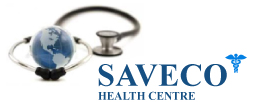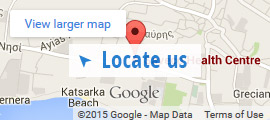
High Blood Pressure

WHAT DOES HIGH BLOOD PRESSURE MEAN?
Blood pressure is the force of blood pushing against the walls of your arteries as the heart pumps out blood. Arteries are vessels that carry blood from the heart to all the tissues and organs of the body.
You need to have a certain amount of pressure in the arteries to keep the blood flowing. Your heart is a small but very powerful pump that beats throughout your life. Your heart beats by contracting and then relaxing, the pressure of blood flowing through your arteries varies at different times in the heart beat cycle.
The highest pressure is known as systolic pressure this is when the heart contracts forcing blood around your body. The lowest pressure is known as the diastolic pressure this is the pressure between heartbeats when the heart is resting.
Both these pressures are very important when measuring your blood pressure. A blood pressure reading will give two numbers the first number will be your systolic pressure (Contraction) the second number will be your diastolic pressure (Resting).
Your target should be to have a blood pressure below 140/85mmHg. If you have diabetes, kidney disease, or disease of the heart and circulation your target should be below 130/80mmHg. (The British Hypertension Society Guidelines).
High blood pressure develops when pressure in the arteries rise and continues to stay high due to the walls of the larger arteries losing their natural elasticity and becoming rigid, the smaller blood vessels then become narrow causing constriction. Hypertension is the medical term for high blood pressure.
High blood pressure is a serious condition, it increases the workload of the heart and arteries causing the heart to pump harder, the arteries then have to carry blood to the organs under much greater pressure.
People with high blood pressure run a higher risk of having a stroke or heart attack. If it is left untreated for a long time high blood pressure can lead to kidney failure, enlargement of the heart which will cause the heart to work less efficiently, this can then lead to heart failure (This is when the pumping action of the heart becomes less effective.
Lowering your blood pressure will help to reduce the strain on your heart kidneys and blood vessels. This will reduce your risk of having a stroke, heart attack and other serious health problems, particularly if you have diabetes kidney disease or have already had a stroke or heart attack.
High blood pressure rarely makes people feel ill. Some people may experience problems with sight, breathlessness or nose bleeds. The only way of knowing you have high blood pressure is to have your blood pressure checked.
For further advice during your holiday in Cyprus contact Saveco Health Centre Ayia Napa Cyprus.
in Agia Napa?
Giourin Gkagkarin 29,
5330 Ayia Napa
P.O. Box 30868,
5346 Ayia Napa,
Cyprus
in Larnaca?
Evagora Pieridi 11,
Larnaca





